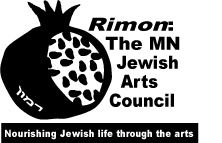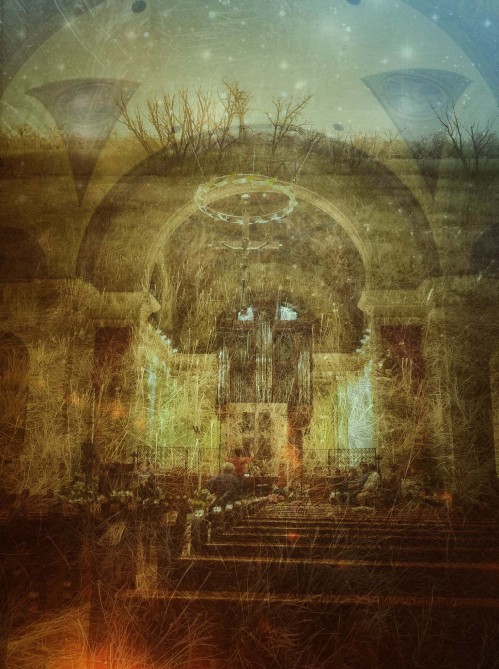Five Books Choral Suite Readings and Recording Sessions
Open Readings and Recording Sessions
June 18, 2013 – 6:30pm to 8:30pm
June 19, 2013 – 6:30pm to 9:30pm
Art Room
Hennepin Avenue United Methodist Church
511 Groveland Avenue, Minneapolis 55403
suggested donation: $10 at the door
Interference Arts and First Readings Project invite you to two readings and recording sessions of Craig Harris’ Five Books Choral Suite, a choral composition that offers windows into some of the stories and predominant themes found in the Five Books of Moses, the Old Testament. The underlying themes in the suite highlight humanity’s repeated efforts to realize their potential only to face failure and defeat, and their ongoing struggle to find their way “out of the wilderness” as they continue the journey.
The Five Books Choral Suite incorporates four soloist vocal performers and a 12-person choir that breaks out into three distinct SATB groupings. The choir is accompanied by the piano in most movements, and a violin and drum join the group in the final movement.
Moses (baritone) is the storyteller, conveying the history of his people’s path, and leading them through the wilderness. The Soprano soloist represents the individual “spokesperson” for the people. The concept of deity in the Five Books Choral Suite is neither gender specific, nor gender neutral. Rather, it might be considered as a gender-full representation. The male bass is viewed in the more traditional perspective as a male God figure, and speaks only in Hebrew. The alto singer represents a female counterpart – a kind of Mother Earth or feminine divine Shekhinah figure. In most cases the alto is singing a loose translation of the bass. At times though there nuances where the male deity figure expresses anger and frustration at humankind’s folly and weakness, while the female expresses more gentle compassion and understanding, like two sides of the same coin.
Program:
I. and on the 7th Day (June 19)
The Suite begins with and on the 7th Day, a fast paced survey through multiple unsuccessful attempts by humans to realize their potential and fulfill their destiny over many generations, only to have to start over and try again. The stories referenced are potent in our collective cultural memory, and the mere mention of names and events trigger a host of impressions, rich in implication.
II. Babel Lament (June 19)
Babel Lament is a lamentation on the Tower of Babel story, a tale that appears in various forms in the history of several cultures. The people look back on their tremendous effort to unify and create a magnificent city with a tower reaching high into the sky, and they lament their failure to realize the dream. This interpretation is a call to join forces in unity to build something together. The story provides a context to reflect upon our history – our past attempts to unify with common purpose to accomplish something for the community – and to consider the implications of ignoring the call, or of failing in the effort.
There are three layers of text, adapted from Genesis 11:3-4:
Come. Build a city, a tower in the sky. Make a name, or scatter over the earth. One language. One purpose. Nothing out of their/our reach. Limit their/our reach. Confound their/our speech. Scatter over the earth.
This movement is about coming together, moving beyond our differences, and setting on a unified path towards the common good. It is about the balance between pursuing our individual interests, and serving broad community goals. It is about hubris and arrogance, and about allowing our differences in culture, language, interests and purposes to define us. It is also about reaching far, even risking failure, to achieve something great.
This movement was recorded on April 16, 2013 by The First Readings Project – J. David Moore, conductor. Here is a link to an audio recording of Babel Lament.
III. Remember Babel (June 19)
Movement three briefly returns to the disruptive linear character of the first movement, placing the Babel story in the context of the many other efforts of humanity to flourish and fulfill their potential.
VI. Meditation 1: Their Cry has Reached Me (June 18 & 19)
The fourth movement is a meditation on text from Exodus 3:7, as God hears the cry of the people, and acknowledges their suffering in Egypt.
I have marked well the plight of My people,
and have heeded their outcry.
I am mindful of their suffering.
V. Meditation 2: Tribulation (June 18 & 19)
Tribulation is the second meditation, and characterizes the collective crisis of faith in the desert. The following text characterizes the state of universal distress that permeates this movement:
In the wilderness – Wandering.No food – no water. No end in sight.
The people muttered against Moses, and against God.
Moses doubted himself.
God questioned his creation.
VI. Bamidbar / in the Wilderness (June 19)
In the final movement everyone is fully engaged in the struggle to find the path out of the wilderness. Though still in the wilderness, the sense of celebration gradually infuses the community. The journey takes on a new character, largely due to the energy that comes from joining together in communal purpose, dancing together, and finding a new way to approach being in the wilderness. It is in this a transformed attitude where the true message of the work resides: we are all in the wilderness together, and whether or not we find our way out of the wilderness, we can at least find joy together on the journey.
Information about Babel Lament, and the audio recording from an April 16 recording session with First Readings Project can be found at https://interferencearts.com/2013/05/10/babel-lament/
The First Readings Project
Email: 1streadingsproject@gmail.com
Web Site: http://firstreadingsproject.org/
The First Readings Project – J. David Moore, conductor, is a professional chamber choir founded to assist composers in the development of new music for vocal ensemble. The group presents a series of public readings of new works and works-in-progress, and also offers its services for recordings and workshops to individuals and institutions.

This project was made possible in part with the support of
Rimon: The Minnesota Jewish Arts Council,
an initiative of the Minneapolis Jewish Federation.

